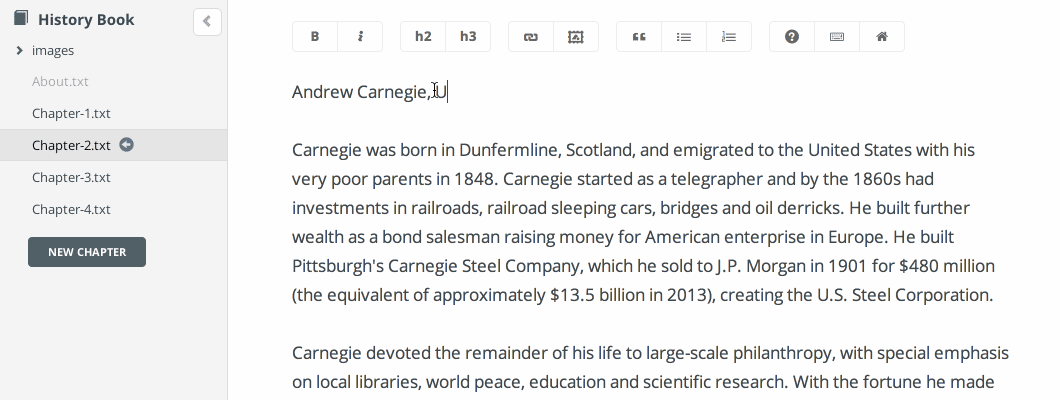Being a writer today has its ups and downs. On one hand, we have a very different process involved in becoming well known for our works; and a great deal of the PR efforts that once would have gone to an official publishing house now rests on our shoulders.
On the other, we have an infinite number of tools, publishing platforms, and increased global visibility at our fingertips. Our success is entirely within our own hands, and that is an empowering aspect of writing today that only increases as the years pass and the rules change.
Another benefit is the ability to collaborate. Writers of all types, from novelists to blogs, to scientific report drafters, can get together with whole teams in real time. You don't even have to be in the same country!
Here are six web-based collaboration tools for writers of all types.
Google Drive

The most obvious choice, Google Drive is the now expanded cloud service that was once Google Docs. It comes with several features: document collaboration, spreadsheets, folder and file uploads, formula drafting, research tools, in-doc chat, and even plugins to customize it to fit your needs.
You can also install cool apps to extend your collaboration capabilities. Many other third party services are integrated. Using a tool like IFTTT, you can create all sorts of handy connections with services like Bitmarks, or Instagram.
Permissions are totally customizable, so you can select who is able to edit, who can view, and who can share. This gives you a bit more control over your content and protects you.
A more advanced extension of Google Drive for larger businesses is Google Cloud which looks like one of the most reliable cloud and collaboration solutions (According to SiteGeek, it's uptime is over 93% and according to TechRepublic, its price is unbeatable).
MyBlogU

Sometimes collaboration is more about gathering content than having assistance in writing and editing it. MyBlogU is a unique platform that gives you access to other experts in various categories.
You can pull quotes, ask questions, and create collaborative interviews. Make connections with potential writing partners and guest posters. It is a way to create strong, interesting content using the collective force of an entire community.
This is one of the latest ideas to expand on the idea of crowdsourcing, and it is awesome.
Draft

Draft is a super simple collaboration tool that is aimed at version control. But it also allows you to give versions to editors for archived changes, compare old and new writings, The most popular future is "Hemingway Mode."
According to the creator of Draft, Hemingway once said to "Write Drunk, Edit Sober." He took this idea to heart, though not in the literal sense. Instead, he emphasized how different the process of writing and editing really is, and how the two do not mix.
When you turn on Hemingway Mode, you will not be able to edit anything you write. This forces you to barrel on without getting hung up on things like mistakes, wording, tense, or grammar. You are just getting the words onto the page, and you can edit when you are done. It is a brilliant tip and one reason that Draft is especially excellent for creative writers that are overly critical of their work.
Redbooth

Do you work for a company or team that creates content as a department outsourcing project? Or maybe you manage a team of writers from around the world and need a way for you all to remain in communication?
Redbooth is a good tool for that purpose, though less of one for those looking for creative tools. It isn't just a writing platform, but a full business management platform. So you can delegate workflow, manage project tasks, monitor productivity and more from one place. All on a private cloud that protects your company's interests.
Penflip

Easily distracted writers rejoice! For just a simple collaborative editor with a clean and minimalist platform design, you can't go wrong with Penflip. You write, the other person writes, someone edits, and that is it.
The only other feature they have is a publishing tool. You can download formatted versions of your work in several formats, including PDF, ePub, and HTML.
Cyfe

Cyfe is multi-purpose you can use for anything including collaborative writing. You can add contributors to any dashboards you are maintaining and then share your progress, questions, stats, etc. using that dashboard.
Cyfe dashboard is very minimal and visual allowing for better productivity: You can see everything at a glance.
Examples of Writing Collaboration
FirstSiteGuide is a great example of crowd-sourced content: Various niche influencers have been invited to create the convincing landing page. Each expert shares their tips, thus providing an incredibly useful and diverse resource:

Here's my own article that is a collaborative effort of some writers I know. It includes a different tip from each author; All of the tips combined provide a very insightful piece.
Conclusion
Writing with others is a great way to expand on your ideas, benefit from the experience of numerous experts, and even hone your craft as you adapt to meet their style. You would be amazed at the difference having more than one voice makes.
Even if you are only collaborating with an editor, an intuitive web-based tool can make the process much easier. Real-time changes and communication will streamline the process, and let you catch mistakes early on, so it doesn't impact the final version of your work in a negative way.
Do you have any tools that you think should go on this list?